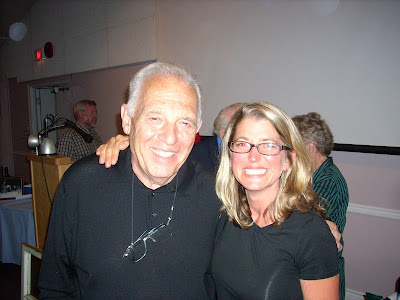12/15/08 Time to Get Fired Up:
Farmlands Conference Brings Farmers Together
KATIE ZDYBEL

On November 27th, concerned farmers and citizens of lower Vancouver Island gathered in Sidney at the Farmlands Conference to talk about how to move forward on issues facing our farmlands, farmers, and local food supply. Vineyard owners, prominent chefs, future farmers, and politicians filled up the rooms where a range of discussion sessions were adeptly hosted by moderators such as Metchosin farmer and Small Farms editor, Tom Henry, and Chef David Mincey of Camille’s. “There are a lot of movements afoot,” observed attendee Carol Herriot (of Seeds of Victoria), “and today we are connecting the dots.”
Leading speakers like the fervent Lana Popham of Barking Dog Vineyard, visionary David Chambers of Madrona Farm, and John Buchanan of Parry Bay Farm who brings thirty years of farming experience to the table, led sessions on themes such as ‘land leasing’ and ‘taking action on farmland issues.’ In true democratic style, the attendees spoke just as much as the panelists and the sessions carried on like townhouse meetings.
“The idea is to improve the lot of the farmer,” began David Mincey, opening the floor for discussion at the session on ‘taking action on farmland issues.’ Many suggestions were offered; “We need to shatter the myth that farmland needs to be owned by the farmer,” David Chambers offered and explained his farm’s position of entering into an agreement with a land trust to secure their farmland in perpetuity as a solution to astronomical land prices in BC. Chef Ken Hueston of Smoken Bones Cookshack stressed the opportunity for chefs to act as leaders of a new food movement that honours local land by bringing in farm fresh produce from as near as possible and teaching the public its merit through deliciousness. A reoccurring theme was getting kids to care about farming and to see it as a viable and valuable lifestyle in our highly modernized world. Popham expressed her wish to see an agricultural component in the school system and Mincey (half) joked that teens should not be able to graduate high school without a month’s work on the farm. Attendee Randy Pearson (of Islands Organic Producers Association), pointed out the reason for the near-extinction of new farmers: “Until it’s viable to send your kids to university on a farm income, people aren’t going to pick up the hoe.”
Though high prices, Agricultural Land Reserve red tape, and a dwindling crop of fresh farmers are serious obstacles, the prevailing energy was one of vim and action. The small farmers, vintners, chefs who source locally, seed-savers, and supportive citizens who gathered together in Sidney carried with them an appreciation for resources (whether they be water, land, or enthusiasm), a willingness to listen, and ideas that are nothing short of visionary. As Popham said, “All of this can either shut you down or fire you up…and I’m fired up.” The resounding applause and cheers were a strong indication that her words connected with many.












